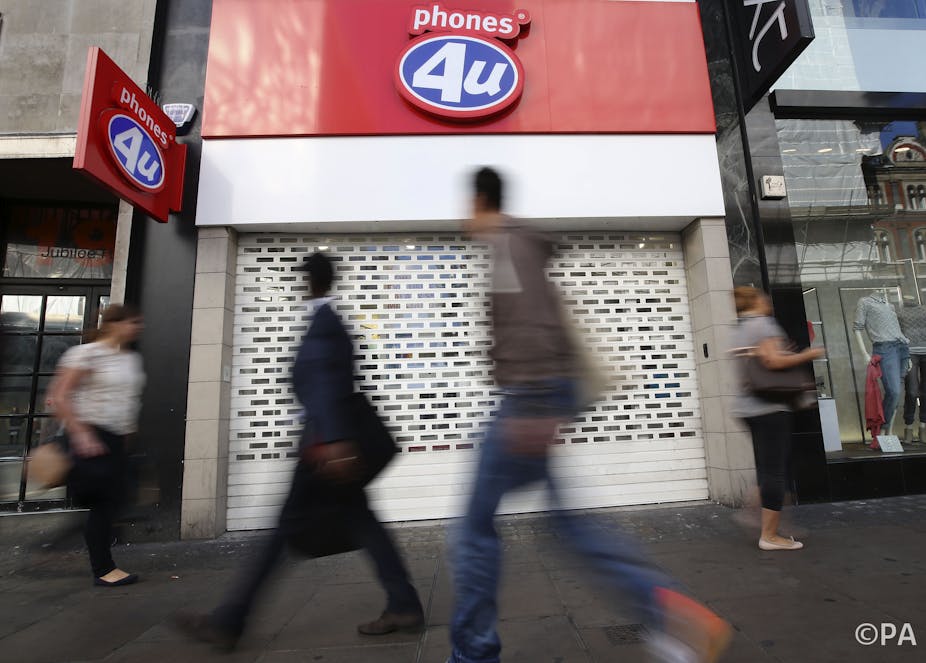Another retailer bites the dust. This time it’s Phones 4U that’s closing its doors. But the reality of this company’s demise seems to be the result of the ambitions of phone operators and Phones 4U were the luckless collateral in this particular war. Unfortunately, however, it means that thousands of people will be made redundant and that shoppers will see more closed stores on the high street.
The final nail in the coffin for Phones 4U came when its last remaining operator partner, EE, removed its patronage. Their withdrawal followed that of Vodafone a couple of weeks previously and O2 and Three earlier in the year. So the closure was an almost inevitable outcome – no retailer can effectively rely on only one source of supply.
It meant, above all, that in the very price-sensitive field of comparing package offerings on mobile phone contracts, Phones 4U had nothing to offer their customers in terms of price comparisons. EE has its own chain of high street stores, so it really didn’t need Phones 4U any longer.
Should consumers be concerned?
David Kassler, chief executive of Phones 4U, said that its closure would mean “less competition, less choice and higher prices for mobile customers in the UK”. He believes that the operators’ strategy is to reduce the number of phones and contracts sold through independent outlets in favour of dealing with customers directly, with an associated increase in profit likely through such a move.
Strategically, many commentators would suggest that this is a sound business move to make. This kind of vertical integration – where companies control the gamut of their operations from manufacturing to distribution – is how many suppliers, from Tesco to Apple, manage to increase their profit potential, through a direct route to consumers.
Clearly, the removal of a player in the market – and one that had been doing very well until recently – means less competition. And history shows that can mean higher prices and a reduced amount of choice for consumers. Multiple retailers in the past have been accused of pricing out local competition and when these small shops went to the wall, they proceeded to increase prices where it suited them. So, while some people may wish for less choice in what can be a complicated process of deciding which phone and price plan to choose, they will not like it if that comes with a higher-priced handset and operating costs.
A buoyant market
By and large, however, the mobile phone market is buoyant. Plus, consumers are fickle and will probably be more concerned with getting the latest model when it is marketed and will accept the price increases when they come. The problem is that our memories are short and time-pressed consumers too often accept what is on offer.
Nevertheless one less shop means less competition for those remaining. The closure of Phones 4U means there are fewer places for customers to go to check and compare prices and to look, feel and experience the goods they are going to buy. It is important to remember that not everyone has access to or feels comfortable using the internet to do their comparison shopping. Some people actually look for the advice and service that a face-to-face experience provides. And when there is competition on the high street, if you are unsatisfied with one place you have an alternative to choose from. That in itself keeps sales staff on their toes in terms of providing good customer service.
As for the high street, what is needed is a far more radical rethink of what the 21st-century high street should look like. The real losers are those who have lost their jobs at a difficult time, as opportunities on the high street are clearly shrinking.

